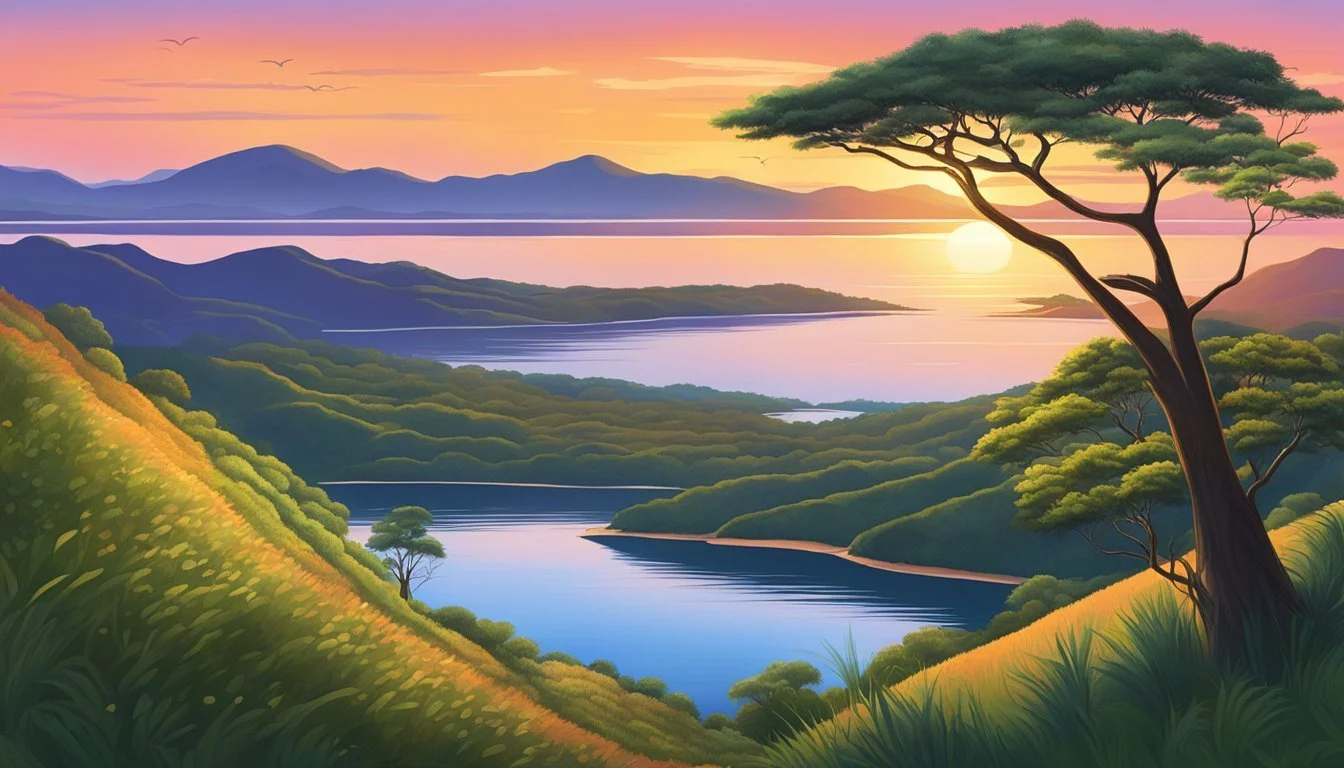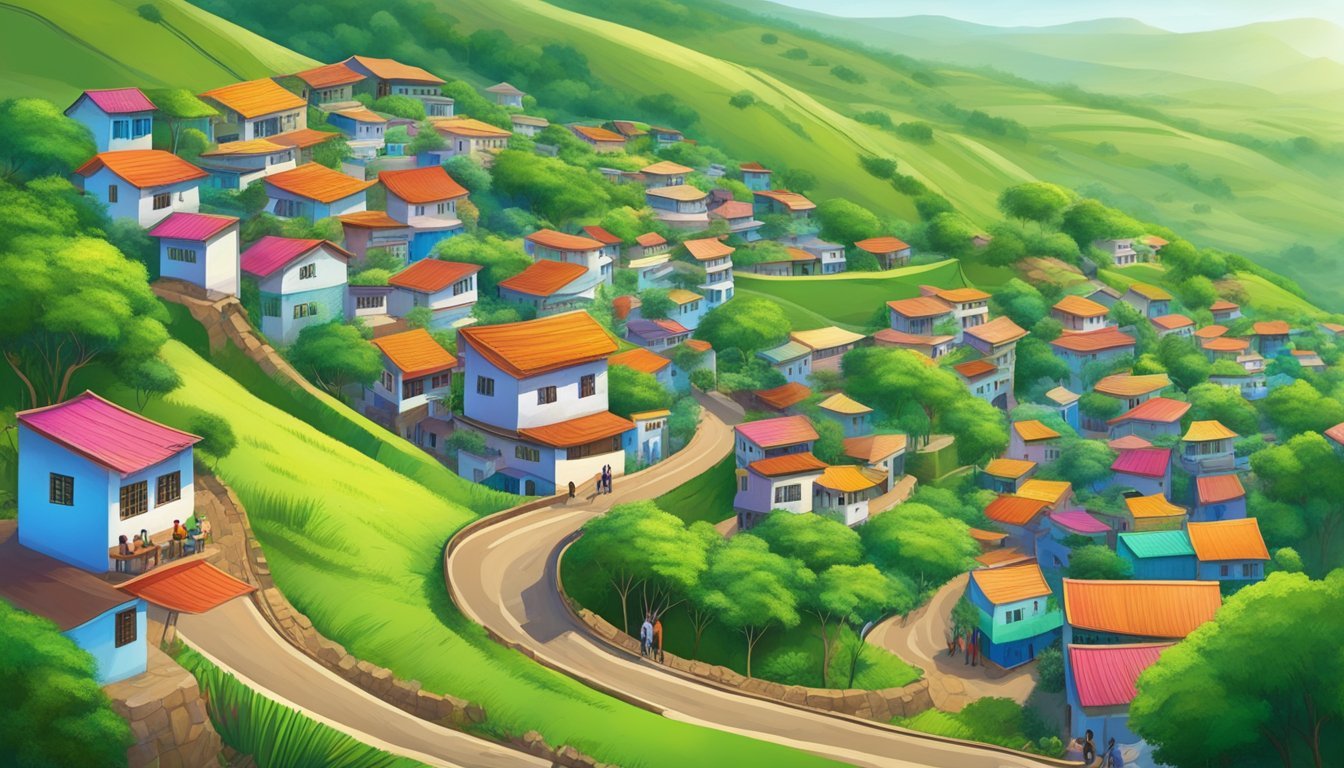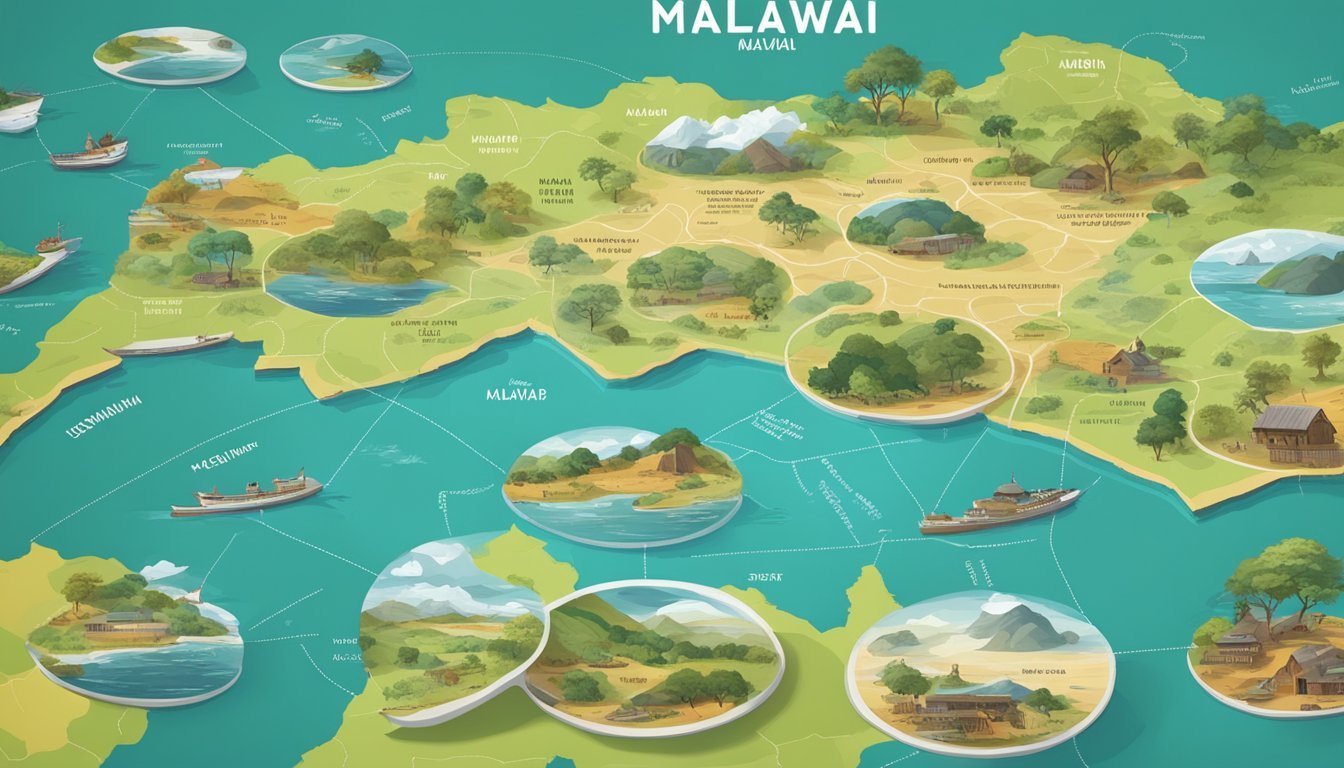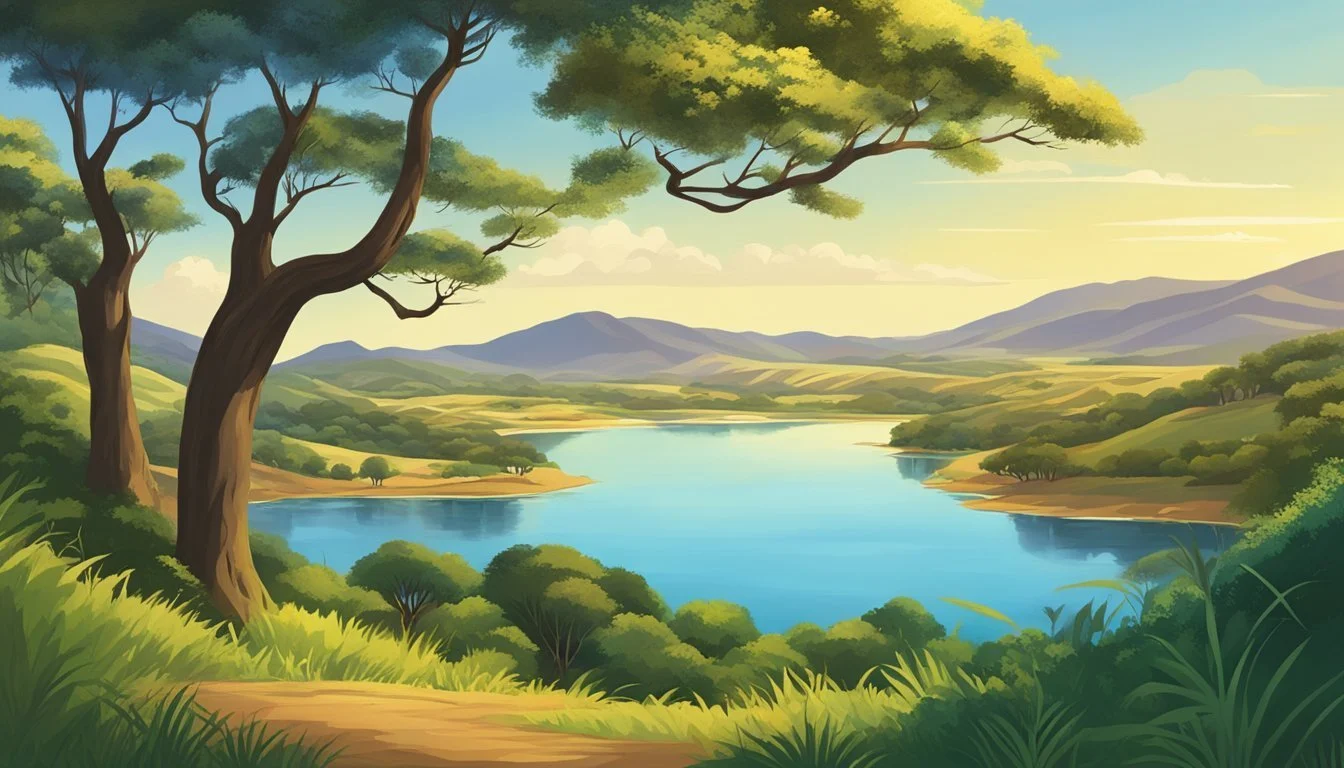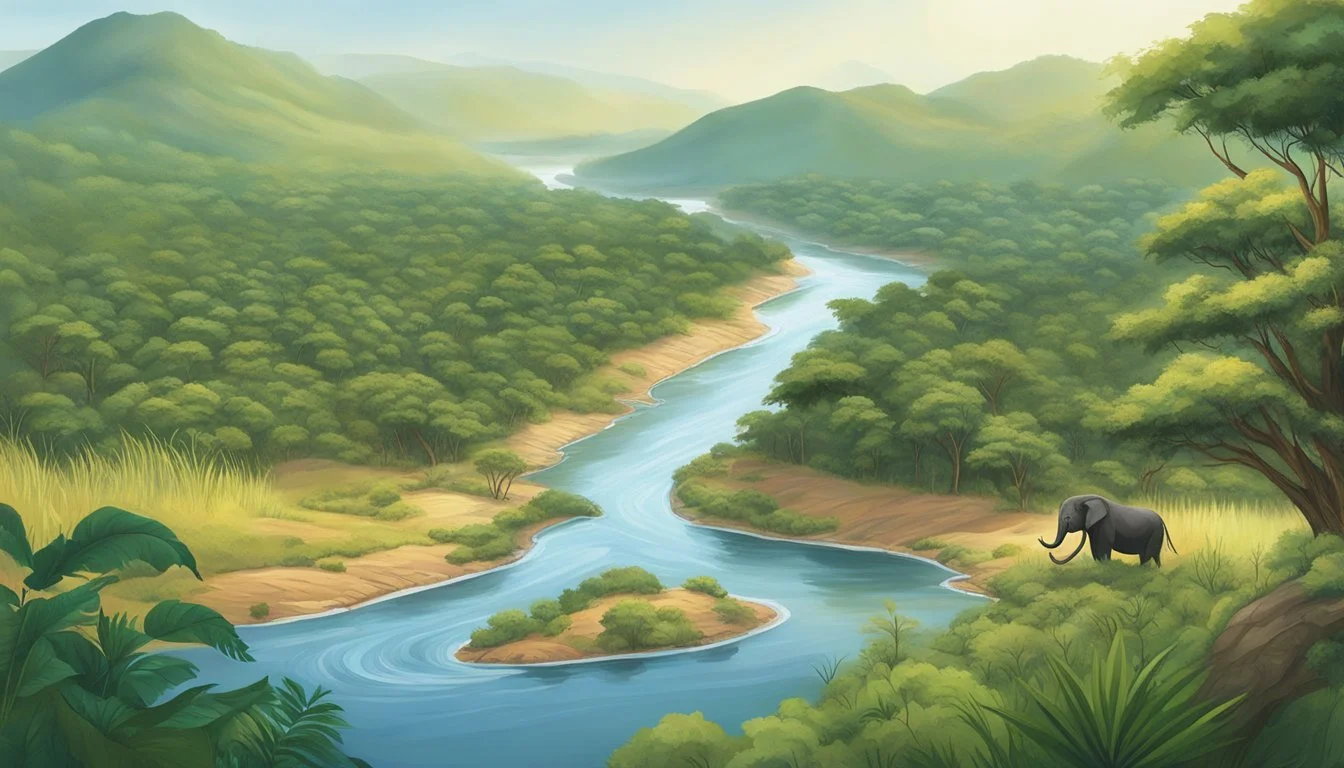6 Must-Watch Documentaries on Malawi
Exploring the Warm Heart of Africa
Malawi, known as the "Warm Heart of Africa," offers a captivating subject for documentary filmmakers. This landlocked country in southeastern Africa boasts diverse landscapes, from vast plains to misty highlands, and is home to Lake Malawi, which covers one-fifth of its territory. Despite its natural beauty, Malawi faces significant economic challenges.
These six must-watch documentaries provide viewers with an in-depth look at Malawi's culture, geography, and social issues. From exploring the country's spiritual beliefs to examining its agricultural practices, these films offer unique perspectives on life in one of Africa's lesser-known nations. Each documentary captures a different aspect of Malawi's rich tapestry, inviting audiences to discover the complexities of this intriguing country.
1) The Last Fishing Boat
"The Last Fishing Boat" is a compelling Malawian film directed by Shemu Joyah. Released in 2012, this drama explores the clash between tradition and modernity in Malawi.
The story revolves around Yusufu, a fisherman on Lake Malawi struggling with dwindling fish populations. His traditional way of life faces challenges from the growing tourism industry.
The film features a cast including Joyce Mhango Chavula, Hope Chisanu, and Robert Kalua. It delves into complex themes of cultural preservation and economic pressures.
Yusufu's third wife becomes a central figure in the narrative. She finds herself torn between loyalty to her husband and the advances of a white tourist.
"The Last Fishing Boat" received positive recognition, earning an 8.4 rating on IMDb. It showcases the natural beauty of Lake Malawi while addressing important social issues.
The film runs for approximately 110 minutes and is available in both Chichewa and English versions. It offers viewers a glimpse into Malawian culture and the challenges faced by traditional communities.
2) The Road to Ndirande
"The Road to Ndirande" is a compelling documentary that explores one of Malawi's most notorious slums. Located on the outskirts of Blantyre, Ndirande has gained a reputation as a challenging and often misunderstood area.
The film takes viewers on a journey through the winding streets and bustling markets of this densely populated township. It offers a rare glimpse into the daily lives of Ndirande's residents, showcasing their struggles and aspirations.
Through intimate interviews and candid footage, the documentary challenges common preconceptions about the area. It highlights the community's resilience and the vibrant culture that thrives despite difficult circumstances.
The filmmakers also examine the historical and socioeconomic factors that have shaped Ndirande over the years. They explore the impact of urbanization and the challenges faced by local authorities in managing the area's growth.
"The Road to Ndirande" provides a balanced perspective on this complex community. It presents both the hardships and the moments of joy that define life in one of Malawi's largest informal settlements.
3) B'ella
B'ella is a Malawian feature film that offers a poignant glimpse into the life of a teenage girl in modern-day Malawi. The movie follows 17-year-old B'ella as she navigates the complexities of adolescence in Chazunda, on the outskirts of Blantyre.
The film explores B'ella's experiences with first love, friendships, and her aspirations for the future. It captures the challenges she faces as she balances traditional expectations with evolving societal roles for girls in Malawi.
Directed by a debut filmmaker, B'ella provides an authentic portrayal of everyday life in Malawi. The movie showcases the protagonist's sincere efforts to mature and find her place in a changing world.
While B'ella may not boast high production values, it serves as a powerful mirror reflecting the reality of many Malawian teenagers. The film offers viewers a unique opportunity to gain insight into the coming-of-age experience in this African nation.
B'ella premiered in Blantyre and has garnered attention for its honest depiction of youth culture in Malawi. It stands out as a significant contribution to Malawian cinema, offering both local and international audiences a window into the country's contemporary social dynamics.
4) Mwansa the Great
"Mwansa the Great" is a short film directed by Rungano Nyoni, released in 2011. The story follows a young boy named Mwansa who embarks on a journey to prove himself as a hero.
Set in Zambia, the film explores themes of childhood imagination and determination. Mwansa's quest begins after he accidentally breaks his sister Shula's clay doll, prompting him to seek redemption.
The film garnered significant acclaim, screening at over 100 international film festivals. It received more than 20 awards and earned a BAFTA nomination for Best Short Film in 2012.
Nyoni's direction brings authenticity to the Zambian setting, capturing the essence of rural life and childhood experiences. The cinematography by Andrzej Król enhances the visual storytelling, immersing viewers in Mwansa's world.
While not a traditional documentary, "Mwansa the Great" offers valuable insights into Zambian culture and childhood perspectives. Its narrative approach provides a unique lens through which to explore Malawian themes and experiences.
5) The Price of Gold
"The Price of Gold" is a compelling documentary that delves into the world of figure skating. While not directly related to Malawi, this film offers valuable insights into the pressures of competitive sports.
The documentary focuses on the infamous 1994 scandal involving Nancy Kerrigan and Tonya Harding. It explores the events leading up to the attack on Kerrigan and its aftermath.
Director Nanette Burstein presents a balanced view of the incident, featuring interviews with key figures. The film examines the intense rivalry between the skaters and the media frenzy that followed.
"The Price of Gold" raises questions about the costs of pursuing Olympic dreams. It highlights the sacrifices athletes make and the toll of public scrutiny.
This documentary serves as a cautionary tale about the dark side of competitive sports. It provides a thought-provoking look at ambition, ethics, and the pursuit of excellence.
6) Tabò – A Home Movie for Freud
Tabò is a unique documentary that offers a glimpse into Sigmund Freud's private life through rare home movie footage. The film presents intimate scenes of the renowned psychoanalyst and his family.
The footage was captured by Mark Brunswick, a friend and patient of Freud. Brunswick was married to Ruth Mack Brunswick, a close associate of Freud's in the field of psychoanalysis.
The documentary provides a 24-minute compilation of these personal moments. It showcases Freud in everyday situations, interacting with family members and friends outside of his professional setting.
Viewers can observe Freud's demeanor and relationships in a casual environment. This offers a contrast to his public image as the father of psychoanalysis.
The Freud Museum has made annotated clips from the film available on their website. These clips provide additional context and insights into the scenes depicted.
Tabò serves as a valuable historical document. It allows researchers and enthusiasts to see a different side of Freud, beyond his academic writings and theories.
Cultural Insights into Malawi
Malawi's rich cultural heritage is deeply rooted in traditions, music, and dance. These elements shape the nation's identity and reflect its diverse ethnic groups.
Understanding Malawian Traditions
Malawian culture emphasizes community and family. The concept of "ubuntu" - human kindness and interconnectedness - is central to social interactions. Respect for elders is paramount, with younger generations seeking wisdom and guidance from their seniors.
Traditional ceremonies play a vital role in Malawian life. The Gule Wamkulu, a secret society of the Chewa people, performs masked dances during important events. These dances serve as spiritual and moral education for the community.
Malawian cuisine is another important aspect of the culture. Nsima, a thick maize porridge, forms the staple food. It's typically served with side dishes like chambo (tilapia) from Lake Malawi or various vegetable relishes.
The Role of Music and Dance
Music and dance are integral to Malawian culture, often accompanying significant life events and celebrations. Traditional instruments like the mbira (thumb piano) and drums feature prominently in performances.
The Vimbuza healing dance, recognized by UNESCO as Intangible Cultural Heritage, combines rhythm, singing, and healing practices. It's performed by the Tumbuka people to treat various psychological and spiritual ailments.
Modern Malawian music blends traditional sounds with contemporary styles. Artists often incorporate messages about social issues into their songs, using music as a tool for education and advocacy.
Cultural festivals, such as the Lake of Stars, showcase Malawi's diverse musical talents and attract international attention, promoting cultural exchange and tourism.
Environmental Issues and Conservation
Malawi faces significant environmental challenges, including deforestation, wildlife decline, and climate change impacts. Conservation efforts aim to protect biodiversity and natural resources while adapting to shifting environmental conditions.
Wildlife Conservation Efforts
Malawi's wildlife populations have dwindled due to habitat loss and poaching. National parks like Liwonde and Majete have implemented anti-poaching measures and reintroduction programs. Rangers use advanced technology to monitor animal movements and detect illegal activities.
Community-based conservation initiatives engage local residents in protecting wildlife. These programs provide alternative livelihoods and educate communities on the value of preserving ecosystems.
Efforts to combat human-wildlife conflict include building fences around protected areas and compensating farmers for crop damage. Organizations work to reduce demand for wildlife products through public awareness campaigns.
Impact of Climate Change
Climate change poses a serious threat to Malawi's agriculture-based economy. Erratic rainfall patterns and prolonged dry spells affect crop yields and food security. Farmers are adopting drought-resistant crops and improved irrigation techniques to adapt.
Rising temperatures in Lake Malawi disrupt fish populations, impacting both biodiversity and local livelihoods. Conservation groups promote sustainable fishing practices and establish protected zones to preserve aquatic ecosystems.
Deforestation exacerbates climate change effects. Reforestation projects aim to restore degraded areas and enhance carbon sequestration. Community forestry initiatives encourage sustainable resource management and provide alternative fuel sources to reduce reliance on charcoal.

